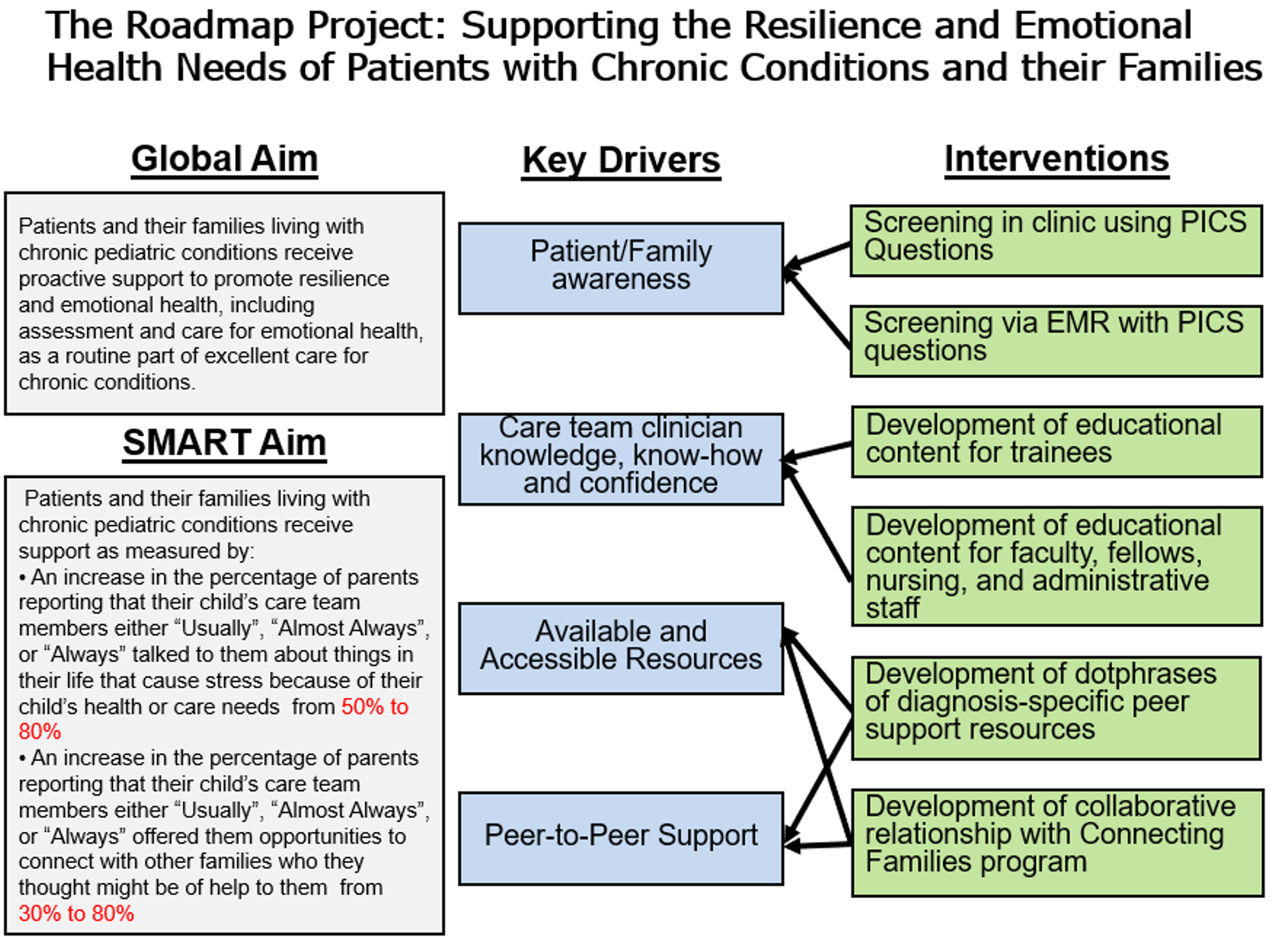Children with Chronic Conditions
Category: Abstract Submission
Children with Chronic Conditions IV
603 - Blending Resident Education, Online Learning and Quality Improvement Efforts During the Pandemic: A Model Curriculum Focused on Addressing Resilience and Emotional Health
Monday, April 25, 2022
3:30 PM - 6:00 PM US MT
Poster Number: 603
Publication Number: 603.404
Publication Number: 603.404
Elizabeth W. Barnhardt, Nationwide Children's Hospital, Columbubs, OH, United States; Amy M. Newmeyer, NCH, Powell, OH, United States

Elizabeth Barnhardt, DO, MAEd (she/her/hers)
Assistant Professor of Pediatrics
Nationwide Children's Hospital
Columbus, Ohio, United States
Presenting Author(s)
Background: The Roadmap Project is the American Board of Pediatrics’ (ABP) national effort to support the resilience and emotional health needs of pediatric patients with chronic conditions and their families through increasing awareness for patients, families, and clinicians, and providing ways to address these issues. Children and adolescents with chronic conditions and their families navigate challenging issues that cause significant stress and can lead to exacerbations in their conditions, challenges in self-care and treatment adherence, and even developmental delays.
Objective: This poster will focus on describing ***’s efforts as part of the Roadmap Project, which included both quality improvement efforts and educational programming.
Design/Methods: As part of this pilot collaborative, the division of Developmental and Behavioral Pediatrics (DBP) at *** through the use of Quality Improvement (QI) methodology and several Plan-Do-Study-Act cycles, set out to improve how often providers addressed issues related to parental stress and provided opportunities for connection with other families. The division also completed a Roadmap Readiness Checklist assessing the clinic’s readiness to address such issues. In addition, a robust curriculum was developed and implemented with the pediatric residents on their Developmental and Behavioral Pediatrics rotation which included both synchronous and asynchronous components. Before and after completing the curriculum, residents were asked about their confidence in initiating discussions about emotional health topics and assessing children with chronic medical conditions for co-morbid depression and anxiety. Experienced parent advocates were heavily engaged in the development and execution of this curriculum.
Results: In general, over the course of the 6-month pilot program, there was an increase in providers asking about parental stress and providing opportunities for connections with other parents despite the pandemic-related restrictions. The resident curriculum was generally well-received and based upon their pre- and post-curriculum assessments, there was an increase in resident confidence in addressing topics related to resilience and emotional health.Conclusion(s): Through participation in the Roadmap Project, the division of DBP at *** is better able to address the resilience and emotional health needs of children with chronic conditions and their families. Quality improvement methods and curricular elements implemented as part of this project are likely to be relevant to all pediatric clinicians and educators.
Key Driver Diagram for the Roadmap Project
Results of Question #1 on the Parent-Completed Survey.png)
Objective: This poster will focus on describing ***’s efforts as part of the Roadmap Project, which included both quality improvement efforts and educational programming.
Design/Methods: As part of this pilot collaborative, the division of Developmental and Behavioral Pediatrics (DBP) at *** through the use of Quality Improvement (QI) methodology and several Plan-Do-Study-Act cycles, set out to improve how often providers addressed issues related to parental stress and provided opportunities for connection with other families. The division also completed a Roadmap Readiness Checklist assessing the clinic’s readiness to address such issues. In addition, a robust curriculum was developed and implemented with the pediatric residents on their Developmental and Behavioral Pediatrics rotation which included both synchronous and asynchronous components. Before and after completing the curriculum, residents were asked about their confidence in initiating discussions about emotional health topics and assessing children with chronic medical conditions for co-morbid depression and anxiety. Experienced parent advocates were heavily engaged in the development and execution of this curriculum.
Results: In general, over the course of the 6-month pilot program, there was an increase in providers asking about parental stress and providing opportunities for connections with other parents despite the pandemic-related restrictions. The resident curriculum was generally well-received and based upon their pre- and post-curriculum assessments, there was an increase in resident confidence in addressing topics related to resilience and emotional health.Conclusion(s): Through participation in the Roadmap Project, the division of DBP at *** is better able to address the resilience and emotional health needs of children with chronic conditions and their families. Quality improvement methods and curricular elements implemented as part of this project are likely to be relevant to all pediatric clinicians and educators.
Key Driver Diagram for the Roadmap Project

Results of Question #1 on the Parent-Completed Survey
.png)
